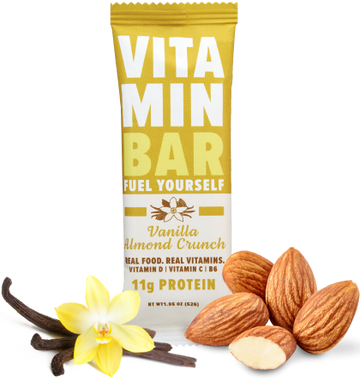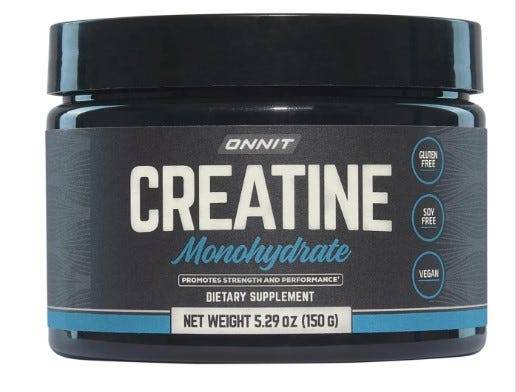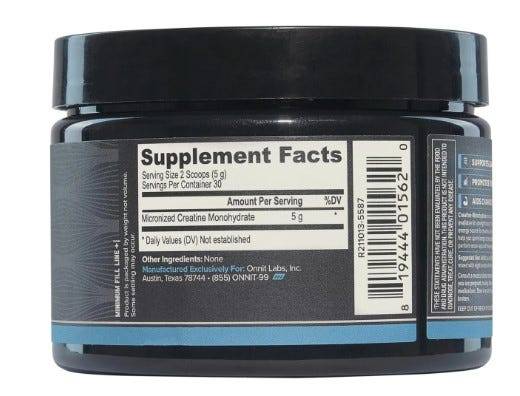#sports nutrition
Text

Flat Stomach Supplements
36 notes
·
View notes
Text
TRY US OUT RISK - FREE FOR 30 DAYS
If you purchase VITAMINBAR and they’re not everything we say they are, we’ll happily refund your money, no questions asked.
#VitaminBar
#vitamins
#protein
#bar
#food
#organicfood
#nutritionbar
#proteinbar
tinyurl.com/2artp3p4


3 notes
·
View notes
Text
#whey protein isolate#whey protein#protein powder#best protein powder#muscle growth story#muscle building#body building#fitness#workout#workoutmotivation#gymtime#gym supplements#sports nutrition#sports supplements#athlete health#body buider#goliathlab#healthy life#health supplements
4 notes
·
View notes
Photo

Buy organic mixed herbs, sports nutrition, gluten free vegan food, essential vitamins and much more. Get natural beauty and strength from today.
2 notes
·
View notes
Text
The Best Sports Nutrition Supplements for Athletes

In the world of sports, athletes are always looking for ways to perform better, recover faster, and stay healthy. Sports nutrition supplements are important for many athletes because they provide essential nutrients that can be hard to get from food alone. This blog will talk about the best sports nutrition supplements for athletes, explaining their benefits and how they can help improve athletic performance.
1. Protein Powders
Protein is essential for muscle repair and growth. Athletes need to make sure they get enough high-quality protein. Protein powders like whey, casein, and plant-based options like pea or hemp protein are convenient ways to do this.
Whey Protein: Known for its high biological value, rapid digestion, and complete amino acid profile.
Casein Protein: A slower-digesting protein that provides a sustained release of amino acids, ideal for nighttime use.
Plant-Based Proteins: Suitable for vegans and those with dairy intolerances, offering a range of options like pea, hemp, and brown rice protein.
2. Creatine
Creatine is a well-researched and effective supplement for boosting strength, power, and high-intensity exercise. It helps replenish ATP, the main energy source in cells, which can improve short bursts of intense activity.

3. Branched-Chain Amino Acids (BCAAs)
BCAAs (leucine, isoleucine, and valine) play a significant role in muscle protein synthesis and recovery. Supplementing with BCAAs can help reduce muscle soreness, decrease exercise-induced fatigue, and support muscle repair.
Leucine: Particularly important for stimulating muscle protein synthesis.
Isoleucine and Valine: Aid in energy production and muscle recovery.
4. Beta-Alanine
Beta-alanine is a non-essential amino acid that increases muscle carnosine levels, which in turn helps buffer acid in muscles during high-intensity exercise. This can delay muscle fatigue and improve performance in activities such as sprinting or weightlifting.
Carnosine Booster: Supports improved endurance and reduced muscle fatigue.
5. Omega-3 Fatty Acids
Omega-3 fatty acids, particularly EPA and DHA, have anti-inflammatory properties that can aid in recovery and joint health. They are also beneficial for cardiovascular health, which is crucial for overall athletic performance.
Fish Oil: A common source of omega-3s, providing a good balance of EPA and DHA.
Algal Oil: A plant-based source of DHA, suitable for vegans.
6. Electrolytes
Electrolytes such as sodium, potassium, and magnesium are vital for maintaining fluid balance, nerve function, and muscle contractions. Athletes, especially those involved in endurance sports, need to replenish electrolytes lost through sweat to prevent dehydration and cramping.
Electrolyte Tablets: Convenient for on-the-go replenishment.
Sports Drinks: Provide a combination of electrolytes and carbohydrates for energy.
7. Glutamine
Glutamine is the most abundant amino acid in the body and plays a key role in immune function, gut health, and muscle recovery. Intense training can deplete glutamine levels, making supplementation beneficial for recovery and immune support.
L-Glutamine: The most common form used in supplements.
8. Caffeine
Caffeine is a well-known stimulant that can enhance focus, alertness, and physical performance. It can improve endurance, reduce perceived effort, and increase the capacity for high-intensity exercise.
Caffeine Anhydrous: A highly concentrated form of caffeine used in many pre-workout supplements.
Natural Sources: Coffee or tea can also provide a caffeine boost.
9. Multivitamins
A high-quality multivitamin can help fill nutritional gaps and ensure athletes are getting essential vitamins and minerals that support overall health and performance.
Athlete-Specific Multivitamins: Formulated to meet the higher nutritional demands of active individuals.
10. Vitamin D
Vitamin D is crucial for bone health, immune function, and muscle function. Many athletes are at risk of deficiency, especially those who train indoors or live in regions with limited sunlight.
D3 (Cholecalciferol): The most effective form of vitamin D for raising blood levels.
Conclusion
Using the right sports nutrition supplements can greatly improve an athlete’s performance, recovery, and health. However, supplements should be added to a balanced diet, not replace it. Athletes should talk to a healthcare professional or a sports nutritionist to create a supplement plan that fits their specific needs and goals. With the right supplements, athletes can fuel their bodies for success and reach their full potential.
For optimal results, try Onnit Creatine Monohydrate — trusted by athletes for its purity and potency.
#sports nutrition supplements#Best Dietary supplements#nutrition supplements#sports supplements#sports nutrition#supplements#The Best Sports Nutrition Supplements for Athletes
0 notes
Text

Looking for the ultimate energy boost? Our Boost Health, Energy, and Sports Nutrition Drink has you covered! Designed to fuel your workouts and daily activities, it's the perfect addition to your fitness routine.
Key Benefits:
Increased Energy
Enhanced Focus
Superior Performance
Check it out at Punctual Kart and feel the difference!
#HealthBoost #EnergyDrink #SportsNutrition #Fitness #PunctualKart #HealthyLifestyle
0 notes
Text

Join TriWorldHub, your ultimate global triathlon companion, for expert advice, training programs, nutrition tips, and gear recommendations. Whether you're a beginner or a seasoned triathlete, we're here to support your journey to success in the triathlon world. Start your journey with us today!
1 note
·
View note
Text
What is the best protein after a workout?
#What is the best protein after a workout?#protein powder#protein#bodybuilding#video#exercise#workout#sports nutrition
5 notes
·
View notes
Text
As parents, we want nothing but the best for our budding athletes. From perfecting their skills on the field to supporting their dreams, we’re there every step of the way. However, one aspect that often takes a backseat is ensuring our young athletes are fueling their bodies for success. Proper nutrition with the help of personalized coaching is the secret weapon that can elevate their game and contribute to overall well-being.
0 notes
Text
Elevating Your Game: The Science Behind Sports Nutrition

In the realm of athletics, athletes are constantly seeking ways to improve their performance and gain a competitive edge. While rigorous training and skill development are essential, one often underestimated factor in achieving peak performance is sports nutrition. Behind every successful athlete is a carefully crafted nutritional plan that fuels their body and supports their athletic endeavors.
Understanding the Science of Sports Nutrition:
Optimal Nutrient Intake: At the core of sports nutrition lies the concept of optimal nutrient intake. This entails consuming the right balance of macronutrients (carbohydrates, proteins, and fats) and micronutrients (vitamins and minerals) to support athletic performance and recovery. The science of sports nutrition delves into the specific metabolic needs of athletes and how nutrient timing and composition can influence energy levels, muscle repair, and overall performance.
Metabolic Processes: The science behind Sports Nutrition also encompasses an understanding of the body's metabolic processes during exercise. For instance, carbohydrates serve as the primary fuel source for high-intensity activities, while proteins play a crucial role in muscle repair and synthesis. By optimizing nutrient intake before, during, and after exercise, athletes can enhance their metabolic efficiency and sustain peak performance.
Applying Scientific Principles to Performance Enhancement:
Nutrient Timing Strategies: One of the key principles of sports nutrition science is nutrient timing, which involves strategically consuming nutrients at specific times to maximize performance and recovery. This may include consuming carbohydrates before exercise to fuel workouts, protein-rich meals or snacks post-exercise to support muscle repair, and adequate hydration throughout the day to maintain optimal performance.
Individualized Nutrition Plans: Another aspect of the science behind sports nutrition is the importance of individualized nutrition plans. Every athlete has unique physiological characteristics, training regimens, and performance goals that necessitate personalized dietary strategies. By working with qualified sports nutrition professionals, athletes can tailor their nutritional plans to meet their specific needs and optimize performance outcomes.
Get More Insights On This Topic: Sports Nutrition
#Sports Nutrition#Athletic Performance#Nutritional Science#Exercise Fueling#Recovery Strategies#Macronutrients#Micronutrients#Hydration Practices
0 notes
Text
Nutrition Tips for a Balanced, Healthy Lifestyle
Are you looking for ways to improve your overall health through better nutrition? We often hear about the importance of a balanced diet, but what does that really mean? And how can we incorporate healthy eating habits into our daily lives?
In this article, we will explore important nutrition tips that can help you achieve a balanced diet and improve your overall health. By following these…

View On WordPress
#best holistic nutrition tips#best nutrition tips#cancer nutrition tips#child nutrition#diabetic nutrition#easy nutrition tips for beginners#fitness tips#food nutrition#health tips#holistic nutrition#nutrition#nutrition tips#nutrition tips for athletes#nutritionist tips#skin nutrition#sports nutrition#sustainable nutrition tips#the best nutrition tips for 2023#tik tok nutrition tips#tips#youth sports nutrition tips
0 notes
Text
#Weight Loss#Weight Gain#Detoxifying Diets#Sports Nutrition#Pre & Post Pregnancy Diets#Gestational Diabetes#Diabetes Management#Cholesterol & BP#Management#Kidney Stones#Jaundice#Lactose Intolerance#Celiac Diet#Anemia#Cancer#Immunity Booster Diets#Joint Pain Relief#Menopause Management#Skin Glow Diets#Hair Fall Control Diets
1 note
·
View note
Text
So Many Sports Nutrition Brands But Trust Is Over A Few Brands Only ?

In the world of sports nutrition, consumers are often faced with a dizzying array of choices. From protein powders to pre-workout supplements, the market is saturated with brands promising to deliver the best results. However, amidst this sea of options, only a handful of brands manage to earn the trust of consumers. This trust is not easily won. It is built on a foundation of quality, scientific backing, and transparency. These are the brands that stand out, that consumers return to time and again. They are the brands that have proven their worth in the highly competitive sports nutrition landscape. But why is trust such a crucial factor in choosing a sports nutrition brand? And why do only a few brands command this trust? Let’s delve deeper into these questions.
The Importance Of Trust In Choosing A Sports Nutrition Brand
When it comes to sports nutrition, trust is paramount. This is because the products we consume directly impact our health and performance. Let’s explore the key factors that contribute to this trust.
Quality of Ingredients
The quality of ingredients in a product determines its effectiveness. Trusted brands ensure they use high-quality, safe, and effective ingredients. They source their ingredients responsibly and adhere to strict quality control measures.
Scientific Backing
Consumers are more informed than ever and demand evidence-based products. Trusted brands invest in research and development to create products that are scientifically proven to deliver results. They often collaborate with scientists and health professionals to ensure their products are safe and effective.
Transparency in Labelling
Transparency is a key factor in building trust. Consumers want to know exactly what they are putting into their bodies. Trusted brands provide clear and detailed information about the ingredients and nutritional content of their products. They do not hide behind proprietary blends or vague labeling. Read about Deceptive labeling in depth to be aware.
Why Only a Few Brands are Trusted
Despite the multitude of sports nutrition brands available, only a few manage to gain the trust of consumers. This is largely due to the following reasons:
Consistency in Quality
Trusted brands maintain a consistent quality in their products. They have stringent quality control measures in place and do not compromise on the quality of their ingredients. This consistency assures consumers that they will get the same high-quality product every time they purchase.
Positive Customer Reviews and Testimonials
Word of mouth is a powerful tool in building trust. Trusted brands often have a plethora of positive customer reviews and testimonials. These reviews provide real-life evidence of the effectiveness of their products and their commitment to customer satisfaction.
Endorsements by Professionals
Endorsements by health professionals, athletes, and fitness experts can significantly boost a brand’s credibility. These endorsements serve as a testament to the brand’s quality and effectiveness. Trusted brands often have such endorsements, further solidifying their position as reliable providers of sports nutrition products.
Case Study: Trust in Apex Vitals
Apex Vitals is a prime example of a trusted sports nutrition brand. This trust has been earned through a steadfast commitment to quality, customer satisfaction, and transparency.
Apex Vitals’ Commitment to Quality
Apex Vitals prides itself on producing high-quality, affordable, and customized sports nutrition products. The company partners with world-class manufacturers across the European Union region to ensure the production and packaging of products meet the highest standards.
Customer Satisfaction with Apex Vitals
Apex Vitals has a strong track record of customer satisfaction. The company’s products are not only effective but also tailored to meet the unique needs of each customer. This personalized approach to sports nutrition has earned Apex Vitals a loyal customer base and numerous positive reviews.
Conclusion: Making an Informed Choice in Sports Nutrition Brands
Choosing a sports nutrition brand is a decision that should not be taken lightly. It’s about more than just the price or the packaging. It’s about trust. Trust in the quality of the ingredients, the scientific backing of the products, and the transparency of the brand. It’s about choosing a brand that values your health and performance as much as you do. While there may be many sports nutrition brands out there, only a few, like Apex Vitals, truly earn this trust. So, the next time you find yourself facing the sports nutrition aisle, remember to make an informed choice. Choose quality, choose science, choose transparency. Choose a brand you can trust.
0 notes
Text
0 notes
Text

Are you looking for a sports nutritionist to help fuel your performance then look no further.
Each of our Nutritionists are verified and qualified to degree level or higher with a diverse range of experience. Head to our directory now to find out more…
#sports directory#athlete now#quality integrity transparency#find a nutritionist#nutrition support#sports nutrition#nutritionists
0 notes
Text
Navigating Carbs and Fats: A Guide for High-Level Athletes

As high-level athletes strive for peak performance, their nutritional choices become paramount in sustaining energy, promoting recovery, and optimizing overall well-being. In this blog post, we delve into the world of carbohydrates and fats, helping athletes distinguish the good from the bad to fuel their bodies for success.
Carbohydrates: The Energy Dynamo
Carbohydrates are the body's primary source of energy, making them a cornerstone in the diet of high-level athletes. However, not all carbs are created equal.
Good Carbs: Fueling Long-Lasting Energy
Whole Grains: Opt for whole grains like brown rice, quinoa, and oats. These complex carbohydrates provide a steady release of energy, sustaining athletes through extended training sessions.
Fruits and Vegetables: Packed with vitamins, minerals, and fiber, fruits and vegetables offer a nutritious way to consume carbohydrates. Choose a variety of colorful options to ensure a spectrum of essential nutrients.
Legumes: Beans, lentils, and chickpeas are excellent sources of complex carbohydrates, fiber, and protein, contributing to sustained energy levels.
Bad Carbs: The Culprits of Energy Crashes
Refined Sugars: Sugary snacks, candies, and beverages lead to rapid spikes in blood sugar followed by crashes. These should be limited or avoided to prevent energy fluctuations.
Processed Foods: Highly processed carbohydrates found in white bread, pastries, and sugary cereals lack the nutritional value of whole foods. They can contribute to inflammation and hinder athletic performance.
Fats: The Essential Building Blocks
Fats play a crucial role in supporting overall health and are particularly important for high-level athletes who engage in rigorous training. Distinguishing between good and bad fats is key to optimizing performance.
Good Fats: Enhancing Performance
Avocado: Rich in monounsaturated fats, avocados provide a creamy texture while offering anti-inflammatory benefits.
Nuts and Seeds: Almonds, walnuts, chia seeds, and flaxseeds are packed with healthy fats, protein, and antioxidants, making them ideal snacks for athletes.
Fatty Fish: Salmon, mackerel, and trout are abundant in omega-3 fatty acids, promoting cardiovascular health and reducing inflammation.
Bad Fats: The Detractors from Performance
Trans Fats: Found in partially hydrogenated oils, trans fats should be avoided as they contribute to inflammation, compromise heart health, and hinder recovery.
Saturated Fats: While some saturated fats are necessary, excessive intake from red meat and full-fat dairy can have negative health implications. Moderation is key.
Strategic Choices for Optimal Performance
High-level athletes should adopt a balanced approach to nutrition, incorporating a mix of good carbohydrates and healthy fats into their diets. Here are some tips:
Timing Matters: Consume complex carbohydrates before workouts for sustained energy and include healthy fats in post-training meals to aid recovery.
Hydration is Key: Proper hydration enhances the body's ability to utilize carbohydrates and fats for energy. Water should be the primary beverage of choice.
Individualized Plans: Athletes may benefit from consulting with a nutritionist to create personalized meal plans that align with their training intensity, goals, and dietary preferences.
Conclusion: Fueling Success with Smart Nutrition
The journey of high-level athletes is intricately linked to the choices they make in the kitchen. By selecting the right carbohydrates and fats, athletes can unlock sustained energy, support recovery, and optimize their overall performance. The key lies in making informed choices, embracing whole, nutrient-dense foods, and tailoring nutrition strategies to individual needs. As high-level athletes navigate their demanding training regimens, the power of smart nutrition becomes a reliable ally on the path to success.
#sports#coaching#gymnastics#mental health#sports training#elite coaching#mental wellbeing#healthy living#kiserspeaks#lonestargymnastics#elite sports nutrition#sports nutrition#nutrition#healthy eating#healthy diet
0 notes